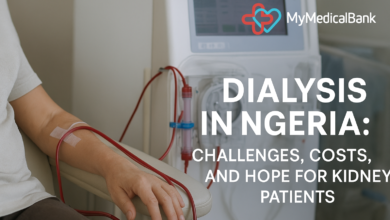Every Parent’s Assumptions During Happy Resumptions: The Questions All Schools Need to Answer
Parent’s Assumptions During Happy Resumptions are unlimited. It is always exciting to see many parents prepare for school resumption this January by shopping for items, grooming the kids and counting the direct and indirect costs of resumption. Most children look forward to mingling with other kids and showing off stuffs they got from the festive break.
I’m certain there will be so many important things to think about that parents actually forget to ask fundamental questions about the school’s health provisions for their kids as they step into a new term. In a way, we are all guilty of thinking that health comes spontaneously — rather we should adopt the principle that “health is planned”.
The Nigerian Federal Ministry of Education in the 2006 National School Health Policy stated that there is a dearth of school health clinics in the country and that where they exist, the services are not comprehensive enough or not organized to meet the needs of the pupils. I do not think so much has changed 12 years after!
It is expedient to state that health is the right of our children. This is especially so because recommendations from the World Educational Forum and the World Health Organization influenced the Nigerian Government to initiate a National School Health Programme to promote the health of learners and the school staff.
Therefore, what questions would you need to ask your child’s school administrators?
Where is the Location/Why the choice of the location? At a time when kidnapping and terrorism are on the rise, schools must be located in a safe area and all schools should have a fence with a gate. They also need to be free from distractions (i.e. away from airports, markets, factories, public motor parks and any source of industrial noise).
Classroom design and sizes: These must support learning and health. They must not be overcrowded and must have adequate cross ventilation. Some diseases like Tuberculosis, Respiratory Tract Infections and contagious skin diseases like chicken pox spread more in overcrowded settings.
Water Supply: All schools should have adequate water supply to prevent water borne diseases. There should be good drainages to forestall common hygiene-related illnesses like malaria.
Toilet Facilities: All schools must have at least one toilet for every 30 students. The toilets must be clean and gender-friendly.
Waste/Water Management: All schools must have functional drainage and waste disposal systems which must be maintained properly.
Environmental Sanitation: All schools will be responsible for a clean environment (classrooms, toilets, kitchens and food stores etc.) that is devoid of air, water or food pollutants. This is crucial to creating a healthy learning environment.
Road/Environmental Safety: All schools are responsible for the well-being and safety of students within the school and on their way back home. Therefore every school should provide necessary measures to ensure the safety of their students.
Food hygiene: Food handlers should be routinely screened to prevent food poisoning and transmission of infectious agents. The school’s kitchen/food stores should be assessed regularly and kept hygienic at all times.
Other School health services to look out for:
- Build the health tradition & skills of students and teaching staff in the school community e.g. hand washing practices.
- Promote the awareness of students about health-related issues in the country.
- Ensure the utilization of various health-related facilities in the school community e.g. Clinic for pre-session screening and assessment of pupils.
- Integrating health education and health officials into the school system.
- Training teachers for early detection of defects and diagnosis of health conditions or diseases amongst all in school.
- Provision of prompt treatment for diseases and injuries occurring among all persons in schools.
- Provision of referral and follow-up services in schools in case of emergencies.
- To ensure effective counselling services for all learners, staff and parents/guardian when necessary.
- Develop the health consciousness of the students e.g. clean uniforms, oral hygiene, nail hygiene etc.
- Create collaborative efforts between the school communities and households.
- Promote the development and growth of every child according to his/her health needs. Giving more attention to those with health challenges.
- Schools endorsing principles of social justice, gender equity and peace to foster proper psycho-social development for pupils.
- Preventing leading causes of death and diseases in the nation and co-operating with health officials to protect our children during outbreaks.
…..Remember to avoid Assumption during this Resumption! Kick start the school health initiative in your kid’s school today! Prevention is better and cheaper than cure.
Till next time, when you think health, think MyMedicalBank!
The author, Dr Ibukun Adebayo a Public Health specialist trained as a doctor at the Obafemi Awolowo University, Ile-Ife Nigeria. He currently works at Ladoke Akintola University Teaching Hospital, Osogbo, Nigeria.
We love hearing from you, please feel free to drop your comments or questions!



